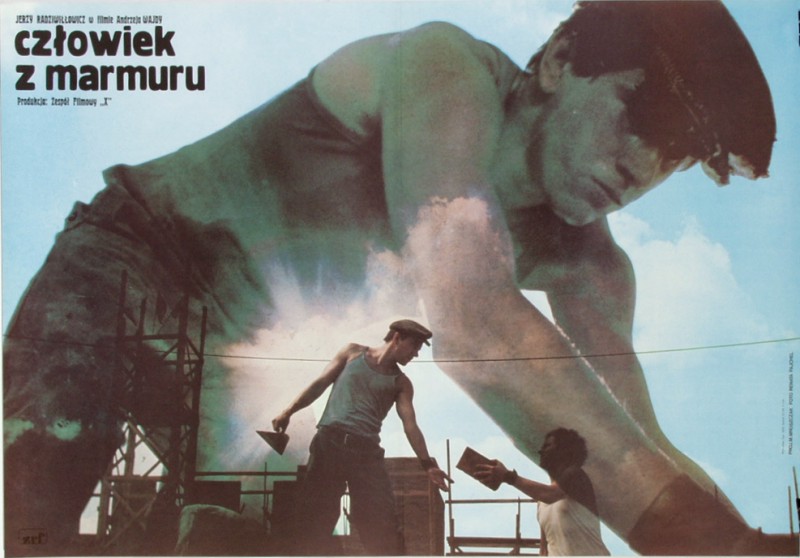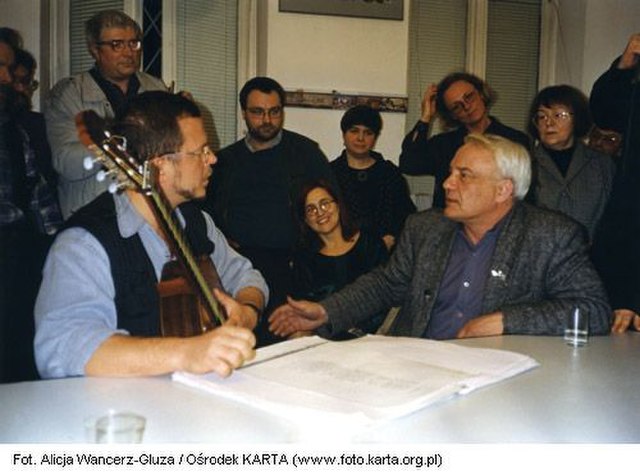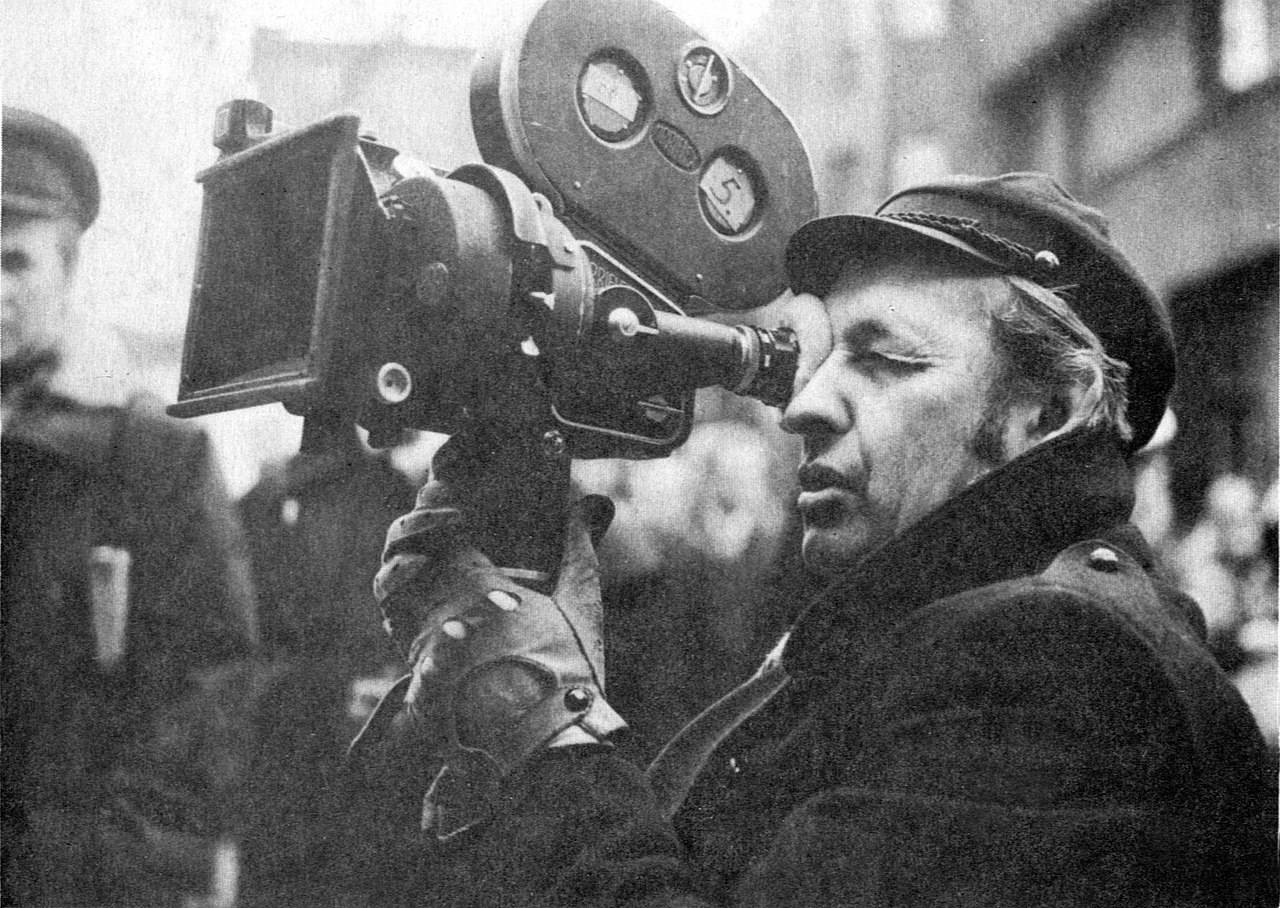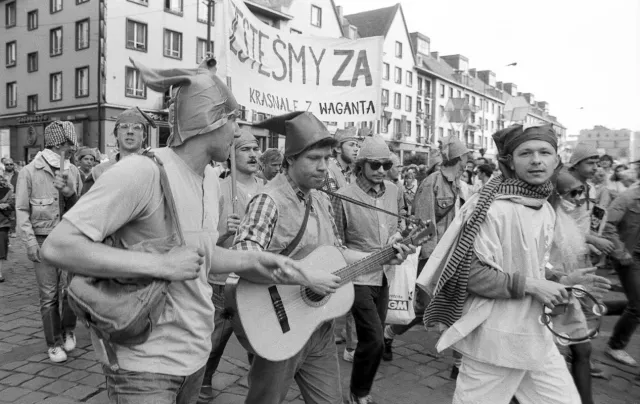
Man of Marble (1977) – Nowa Huta
Polish figure of the „Culture against communism” topic
‘Man of Marble’ by Andrzej Wajda is an iconic film of Polish cinematography and is considered the first film in the new cinema trend, the cinema of moral anxiety. It tells the story of Mateusz Birkut, a labour leader from the Stalinist era who became a propaganda hero and then fell into oblivion. The plot of the film focuses on the young director Agnieszka, who attempts to uncover the truth about Birkut’s fate by making a documentary film in the 1970s. In the course of her investigation, the dramatic truth about the mechanisms of power, the manipulation of the individual and the behind-the-scenes creation of heroes for the use of propaganda is revealed. Through flashbacks and interviews, Agnieszka uncovers not only Birkut’s fate, but also the scale of the falsehood on which the system was based.
‘Man of Marble was a bold move on Wajda’s part, who decided to confront the harsh realities of the Stalinist period. The filmmakers had to face many restrictions, and the film itself was blocked by the censors for a long time, which delayed its release. In the West, the film was not released until 1978, as the communist authorities blocked its distribution. Despite this, Wajda managed to create a work that became a voice against the manipulation of history and propaganda. ‘Man of Marble’ provoked a wide debate and became a symbol of artistic and political courage, gaining the status of one of the most important films in the history of Polish cinema. Through Birkut’s fate, Wajda created a universal story about an individual struggling against the heartless machinery of power. In 1981 Andrzej Wajda made a continuation of the film under the title ‘Man of Iron’.
Witold Bereś, Krzysztof Burnetko, Andrzej Wajda. Podejrzany, 2017.Tadeusz Lubelski, Iwona Sowińska, Rafał Syska, Historia kina Tom 3 Kino epoki nowofalowej, 2015.
Facts






